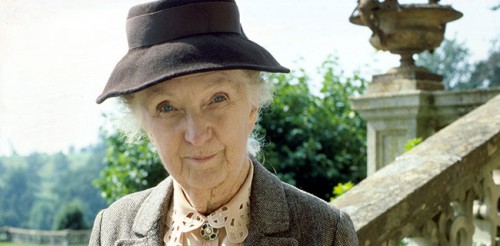Posted by Lyra Mollington
When my mother died, I coped really well. I felt fine at the funeral too. Well, a little bit angry at the detachment and complacency of the Anglican priest, but otherwise fine.
However, for many years afterwards, I found it difficult not to dwell on the fact that she hadn’t reached her ‘threescore years and ten’. I felt resentful when I saw a sprightly old dear out shopping. And I bristled when people said of an elderly person, ‘Isn’t she wonderful for her age?’
I’m ashamed to admit this of course. And extremely ashamed by my reaction when one of my book club friends, Valerie, tearfully told me that her mother had died. Valerie’s mum Emma was 98. And a half. And up until a week before she died she was doing all her own shopping and cooking. I mustered every ounce of sympathy I could find, but all I really wanted to say was, ‘How lucky you had her for so long! Thirty three years more than my mum – that’s a life time.’
I decided to go to the funeral of course. However, I was not looking forward to it, especially as the last one I’d attended was young Lee’s: only twenty three and with two young children.
From the moment I saw that there were at least ninety people in the crematorium chapel, I thought that I might be in for a few surprises. I wasn’t disappointed. The coffin was carried in to the Andrews Sisters singing ‘Show Me the Way to Go Home’. Emma’s family had planned and written the whole ceremony, and one of her grandsons took the role of celebrant. He was excellent – well-groomed, with a delightfully expressive voice, and very good-looking.
During the main tribute, I discovered that Emma’s daughters (Christina and my friend Valerie) were in fact her step-children. Their natural mother had died when Valerie was a baby. In those days, single parents were expected to put their children into care if no-one in the family could help. Their father Clifford struggled for as long as he could but finally he had no choice. Then he met Emma. Or should I say, met her again. They had been sweethearts at the beginning of the War but lost touch when Clifford went abroad to fight. Emma wasn’t going to let him get away again – and a ready-made family didn’t put her off in the slightest.
Both girls were rescued from the orphanage. Christina described her mum Emma as compassionate, caring, selfless and fun-loving. Emma adopted them but never pretended that she was their natural mother. Indeed she often spoke to them about their mother, showing them photographs, remarking how beautiful she was and how she loved them both dearly.
Following the tributes, we sang one of Emma’s favourite songs. Emma loved to sing. Singing in tune wasn’t her strongest attribute, but she was loud and enthusiastic. She taught her children, grandchildren and great grandchildren an interesting assortment of songs like, ‘What Shall We Do with a Drunken Sailor?’; ‘On Ilkley Moor Baht ‘at’; ‘Green Grow the Rushes-O’; ‘The Quartermaster’s Stores; ‘There’s a Hole in my Bucket’; and ‘Home on the Range’. Songs were sung in the house, in the garden, on car journeys and whilst out walking. They all agreed that the one that best reflected her exuberance was ‘The Happy Wanderer’. So that’s the song we sang. Not everyone was in tune but we were loud and enthusiastic!
Then her youngest grandchild read a poem:
I am not gone
I am in the hearts and bodies of my children
I am in the raising of my children and their children to come,
I am in their laughter and in their eyes,
Following a lifelong pattern I have set before them,
I am in their caring and in their strength,
I am in the minds of everyone who has known me,
Search your hearts for good memories,
And then you will know, I am not gone.
By the time we were invited to stand to say the farewell together, I could barely read the words in the order of service.
We left to ‘Swing Low Sweet Chariot’ (sung by Blake) because ‘Emma loved watching the rugby when the England team was playing.’
By the time I stepped outside, I was feeling uplifted and emotional. I made a bee-line for Valerie and did something I should have done when she first told me that her mother had died.
I gave her a big hug.



Thank you Lyra for you insight into yourself and your observances of others. We never really do know what is happening in the lives of others do we – however close we may be. Poor Valerie had lost her real mother but had evidently been blessed by a loving and thoughtful stepmother in Emma. What a touching send off. ( Thank you for the brilliant reminders of sing-a-long car journeys too! )
Thank you Evelyn. And I’m reminded (yet again) how the simplest ideas, when they fit the deceased, can be so moving, like singing along to The Happy Wanderer.
I love the poem too. It is a fitting (and slightly better)alternative to my beloved ‘when you want to see her, look in the faces of your children and your children’s children’ which I use to express the concept of everlasting life. I do love your posts. In our house, the singalongs were more like ‘the baby who fell down the plug’ole’ – dad had a dark sense of humour, but wonderful nevertheless. Women did sing in those days – as they did their tasks usually. And men whistled as they walked along the street. Why don’t men whistle any… Read more »
Thank you Quokkagirl. More communal and family singalongs! Of all kinds! As for whistling, I’m afraid I’m not a fan.